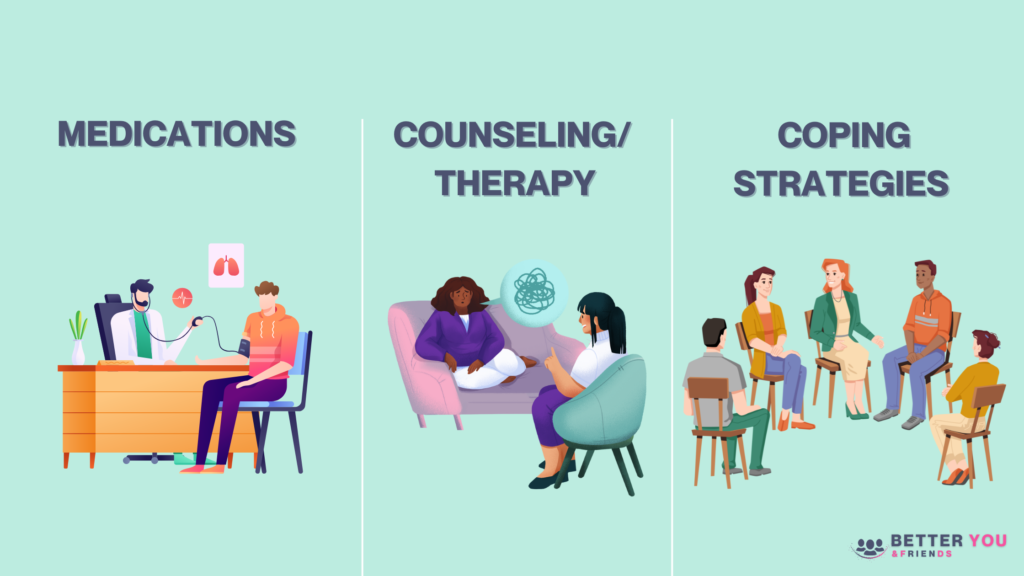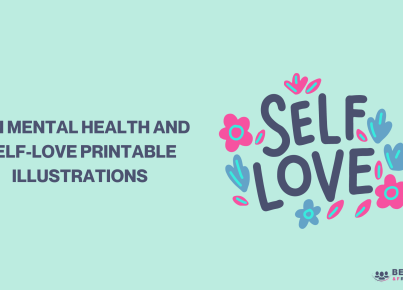Wondering how you can spot and identify the symptoms of social anxiety plus what tips can help you cope and eventually overcome this mental health condition?
Heart thumping, fingers shaking, sweaty palms, sweaty forehead, belly rumbling.
Someone’s about to call your name! You will have to look into the sea of their eyes and speak!
At one time or the other, we’ve had to experience anxiety. It’s normal. We go through stress and worry, and sometimes we get nervous but it’s part of living.
However, when it becomes a constant occurrence in a person’s life, we may have to conclude that the person has social anxiety.
Social anxiety is also referred to as social anxiety disorder or social phobia. It is a mental condition characterized by a chronic fear of social situations. One of many other anxieties connected to mental health.
People with social anxiety live in perpetual fear and sometimes go through panic attacks when they have to interact with people.
Typically, this disrupts their life and affects their activities at school, work, and even home.
What causes social anxiety?
Quick question, what do you fear the most?
We’ve got fears for several things. For some, it’s minimal while yet others are within the boundaries of the fears.
Anxiety is a situation of fear. There are a few things that can make one develop a social anxiety disorder. Let’s consider a few.
- Hyperactivity in the part of your brain called the amygdala. This part is responsible for the flight or fight response in the body. When it is hyperactive, it builds defense mechanisms for fears and threats which are perceived and sometimes non-existent.
- A family history of biological parents or siblings with cases of social anxiety. This is not very common as about only 30 percent of people with a family history of anxiety are diagnosed with it.
- Social anxiety can be developed especially during teen years if a person went through experiences like being neglected, threatened, bullied, rejected, teased, or discriminated against. Victims of sexual, physical, and verbal abuse have a high risk of developing social anxiety.
- It can also develop in persons who are constantly judged or forced to be perfect. This happens mostly in cases where parents are highly overbearing or controlling.
Do you see that?
Social anxiety is not limited to age. However, teenagers and adults are the worst hit.
Sometimes, it gets better for certain people while for some it may get worse. And they may require a form of treatment to get better.
The question on your mind could be: so, how do I know that I have social anxiety?
Let’s discuss this further, shall we?
How to identify social anxiety.
Social anxiety disorder is a common mental condition as we earlier established. Now, a lot of people often live in denial by claiming they are ‘just shy’ or ‘introverted’.
However, Shyness is merely a personality. A person with social anxiety can pass as an extrovert by hiding the signs of the anxiety if he or she can cover up.
Here are some of the common behavioral symptoms you can see in a person with social anxiety:
- Fear of meeting new people.
- Worrying about being perfect.
- Feeling that people are watching and judging them.
- Scared of making mistakes or doing something embarrassing.
- Worrying about events weeks or months ahead.
- Fear of going to public or social places for any reason.
- Avoiding eye contact while talking.
- Scared of striking up a conversation with people.
- Having negative thoughts of the future.
- Crying spells and outbursts of anger in younger people.
- Afraid of drawing attention or being in the spotlight.
There are also physical symptoms like:
- Racing heartbeat.
- Dizziness.
- Sweating.
- Loss of sleep.
- Stomach upset.
- Excretory disorder.
- Nausea.
- Shortness of breath.
These symptoms have different effects on a person’s psychology and lifestyle. It can lead to:
- low self-esteem.
- Negativity
- Being overly sensitive to criticism.
- Poor communication and social skills.
- And in severe cases, depression.
This brings us to the very vital question right now. Is there a solution for socially anxious people? Or do we have to deal with this situation forever?
Let’s consider two aspects of this discourse. First, treatment-wise and coping mechanisms. Sounds good? Let’s take a look.
How to overcome social anxiety disorder.

Social anxiety disorder can be overcome. It can be treated medically or otherwise. When it comes to treatment, there are two major ways.
Overcoming Social Anxiety Through Medications.
People who have social anxiety can get medically treated by being diagnosed first and having several antidepressants and other anxiety medications prescribed for them. One issue with medications is that some of them have side effects on some people. These side effects are a part and parcel of taking medications but they are not harmful. Meditations are rather helpful and sometimes very essential to ease anxiety. Medications should never be taken without consulting a physician or a psychiatrist.
Overcoming Social Anxiety Through Therapy.
Due to the many side effects encountered in using medications, therapy can be opted for.
According to the American Psychological Association, therapy is more effective than using medications. And the best part is, it has no side effects. You just find a good therapist like the ones we have here at BYF. Then, you choose the best type of therapy that will work for you.
While you go through any of these treatment methods, you may want to learn to do a few things that will help to lower the symptoms.
They are called coping skills. Simply put, they are easy day-to-day actions you take to make yourself better.
The following are simple coping skills that act as antidepressants.
Learn more about the condition.
Being armed with knowledge about your problem makes it easier for you to find solutions. Understand your symptoms and your triggers. It can help you make better decisions.
Learn to manage stressful situations.
Although avoiding stressful situations doesn’t take away the problem, it reduces the symptoms. That is why you need to know your triggers. When you do, you can avoid them.
This doesn’t mean avoiding social places entirely. We are only saying you should know when it gets too much and make your exit
Find a support group.
Finding a group you feel safe with is a way of calming you. It’s almost like therapy as you can get to talk about how you feel with people that truly understand you. It is powerful to be understood.
Avoid caffeine.
Source: Giphy
Try to reduce coffee and other consumables that contain caffeine as it triggers anxiety.
This is because caffeine can trigger the flight or fight hormones and cause hyperactivity in the brain cells.
Try to add consumables to your diet that make you calm and don’t trigger anxiety, like decafs and teas.
Have the boldness to say no.
You don’t have to accept every invitation or be at every event. For your health’s sake, try to say no to some. You have nothing to prove.
There is no need to put yourself through the stress of being in places that make you uncomfortable because you want to please a colleague or a group of friends. Clearly explain yourself and politely decline.
Eat right.
There are several nutrients your brain cells need if you go through anxiety. Find out foods that help with anxiety and incorporate them into your daily diet.
You are giving your brain what it needs to stay calm and carry on.
Practice daily meditation.
Meditation is a relaxing exercise. It brings your brain to a point of rest. John Hopkins hospital recommends a daily meditation routine of at least 30 minutes.
Meditation works as an antidepressant when you are triggered, going through a panic attack, or just trying to relax.
Get enough sleep.
Sleep allows your body to relax and get itself together. It helps your cognitive abilities to function better.
To get the most out of your sleep time, turn off lights and electronics and take a warm bath before you go to bed. You can use scented candles for a more relaxing sleep.
Use positive affirmations.
You can motivate yourself by saying positive things to yourself. You can make it part of your daily routine.
Stand before a mirror and speak positive words to yourself:
“I am beautiful”
“I love myself”
“I am in control of my emotions”
“I am good enough”
Try journaling.
Writing down your thoughts and feelings is a great way to deal with anxiety. It helps reduce stress and unburdens your heart.
When you can explain how you feel in articulate words, you free your mind. You can do this 30 minutes before you go to bed.
Stay active.
Exercising and doing other activities like yoga comes in handy in calming stress and anxiety. They are things you do with focus so you learn how to channel your mind on what you want.
As you try to stay active, make sure to do things you love. They are more relaxing.
Develop a self-care routine.
The thing about routines is that once your body gets used to them, they can help your brain to balance and feel that everything is okay.
Your routine should incorporate physical, mental, and spiritual activities you do personally. Try to be consistent with your routine so your body can adapt to it.
If you have symptoms of social anxiety disorder, your best bet is to talk to a doctor. You can then be properly diagnosed and put on a treatment plan of your choice.
While at it, you can back it up by learning the coping skills listed above to aid your healing. Remember, it can only get better!



